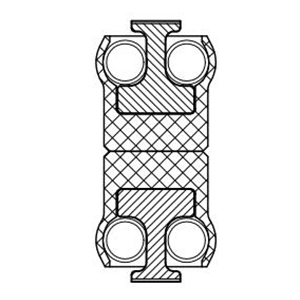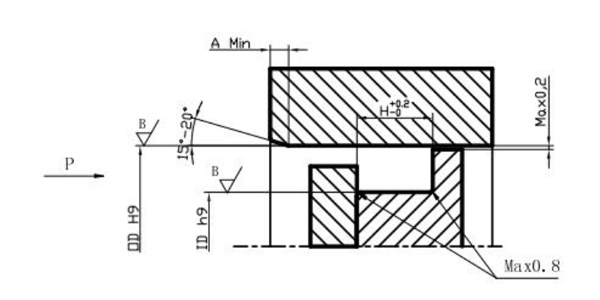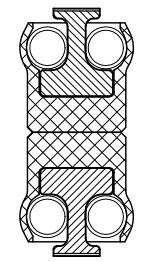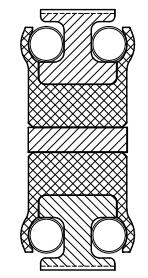Cryogenic ball valve stem seal
In LNG operations, valves can regularly encounter temperatures below -320 F (-196 C) and pressures above 750 pounds per square inch (psi). They are also subjected to periodic variations in temperatures known as “thermal cycling,” which can result in hardware expansion as well as shrinkage and material stresses. These factors make reliable, long-term valve operation an engineering challenge.
Efficient, reliable valve performance is critical to the success of any LNG/CNG operation, and seals play a central role in keeping valves up and running. But their job is made difficult by the demanding service conditions.
Sealing success factors:
To provide superior protection against leakage in cryogenic valves for LNG, seals should have:
1. Jacket matrial that tolerates thermal cycling
2. An energizer to compensate for shrinkage
3. Anti-extrusion lip geometry
With the right material formulation and design, they can actually provide much better sealing service than alternative technologies, such as metallic seals, elastomeric seals and packings—especially in dynamic applications. In fact, the right polymer seals can actually help engineers achieve new levels of valve performance.
Sealing at cryogenic temperatures has its own unique set of challenges. JST has a wide range of solutions for cryogenic sealing applications. Cryogenic seals require skillful design by combining the right type of material, seal configuration, and spring energizer to overcome the dimensional fluctuation of all mating parts.
Low temperature cryogenic seals application:
Rocket propulsion Filling Systems
LNG Compressors
Cryogenic Valves Stem Seals
Cryogenic Butterfly Seat Seals
Cryogenic Transfer Pumps
LNG Fueling Systems
Petroleum
Scientific Instrumentation
Specialty Gas Manufacturing
Spring energized seal:
The FMR seal is made of a helical wound spring and a polymer jacket, which is mainly used as a Flange outer face seal.
The polymer jacket's material includes PTFE,TFM, PCTFE, etc.
The helical wound spring's material includes Stainless Steel, Elgiloy,Hast Alloy,etc.
When the pressure is more than 900LBS, an anti-extrusion ring is required;

|
Advantages:
1. Material compound passed API 6A FF/HH Immersion Testing;
2. Easy installation;
3. NACE approved energizers available for oil and gas use;
4. Wide range of cross-sections and diameters available,especially for the bigger cross section;
5. Good sealing performance at ultra low temperature;
6. Bi directional design works better in the high pressure application.
|
Working Conditions
|
Temperature range
|
Pressure
|
Medium
|
-196~100℃
|
150LB, 300LB, 600LB, 900LB, 1500LB, 2500LB
|
LNG, Low temperature ethylene
|
|
API 6D Stem Seal selection table
|
|
Groove DWG:

|
|
Temperature Rating
|
JST Series
|
Spring
|
0~900(LBS)
|
900~2500(LBS)
|
G=(OD-ID)/2
Standard CS:G=(OD-ID)/2
|
L Value
|
|
(-196℃~-100℃)
|
FMR
|
Golden Elgiloy
|

|

|
4.7
|
13
|
|
6.1
|
15
|
|
8
|
15.5
|